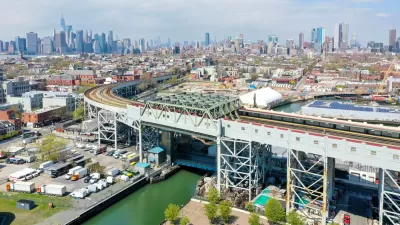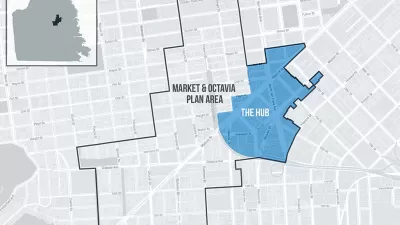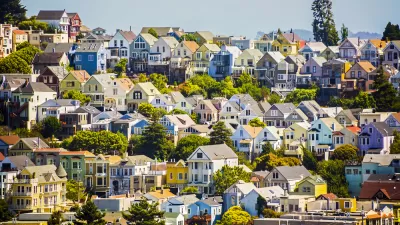Unlike the 1970s and 80s, when a building boom created a vocal backlash, S.F.'s current surge in development hasn't galvanized a concerted no-build movement. If gentrification is driven by demand 'from the bottom up,' does that mean it's desirable?
Columnist C.W. Nevius examines why San Francisco's current building boom is happening "with surprisingly little grumbling.
Gentrification, he explains, became a dirty word during the "Manhattanization" of the city in the 1970s and 80s. "The difference this time is that the push is coming from the bottom up," he contends. "Rather than fat-cat developers promoting ugly skyscrapers, the demand is coming from young techies who work here or in the Silicon Valley and want to preserve the feel of unique neighborhoods. Their presence is being felt not only in the Mission, where Facebook founder Mark Zuckerberg now has a home, also in areas that were once considered downtrodden."
"This boom has its share of concerned activists," says Nevius, "but we have yet to see the stop-any-kind-of-development movement we saw in the '80s."
"But," counters Nevius, "those changes are largely happening in neighborhoods that have made the progression from urban blight to uber-hot."
Or, perhaps after several decades of trendy restaurant openings and "[r]unaway rental and housing rates," there's just not many people left to displace.
FULL STORY: Gentrification no longer a dirty word

Planetizen Federal Action Tracker
A weekly monitor of how Trump’s orders and actions are impacting planners and planning in America.

Restaurant Patios Were a Pandemic Win — Why Were They so Hard to Keep?
Social distancing requirements and changes in travel patterns prompted cities to pilot new uses for street and sidewalk space. Then it got complicated.

Map: Where Senate Republicans Want to Sell Your Public Lands
For public land advocates, the Senate Republicans’ proposal to sell millions of acres of public land in the West is “the biggest fight of their careers.”

Maui's Vacation Rental Debate Turns Ugly
Verbal attacks, misinformation campaigns and fistfights plague a high-stakes debate to convert thousands of vacation rentals into long-term housing.

San Francisco Suspends Traffic Calming Amidst Record Deaths
Citing “a challenging fiscal landscape,” the city will cease the program on the heels of 42 traffic deaths, including 24 pedestrians.

California Homeless Arrests, Citations Spike After Ruling
An investigation reveals that anti-homeless actions increased up to 500% after Grants Pass v. Johnson — even in cities claiming no policy change.
Urban Design for Planners 1: Software Tools
This six-course series explores essential urban design concepts using open source software and equips planners with the tools they need to participate fully in the urban design process.
Planning for Universal Design
Learn the tools for implementing Universal Design in planning regulations.
Heyer Gruel & Associates PA
JM Goldson LLC
Custer County Colorado
City of Camden Redevelopment Agency
City of Astoria
Transportation Research & Education Center (TREC) at Portland State University
Camden Redevelopment Agency
City of Claremont
Municipality of Princeton (NJ)





























